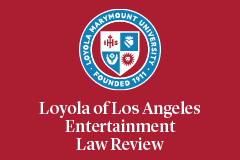Abstract
On May 14, 2018, the Supreme Court struck down the Professional and Amateur Sports Protection Act (PASPA). Before the Court’s decision, PASPA had entirely prohibited states from legalizing sports gambling. In light of their newfound liberty, states began to individually legalize and regulate sports gambling. The federal government did not wait long to introduce their own regulations. On December 19, 2018, Congress introduced the Sports Wagering Market Integrity Act (SWMIA). At its core, SWMIA is designed to protect the integrity of professional sports.
To protect the integrity of professional sports and prevent fraud, SWMIA must accomplish three things. First, because sports wagers are similar to securities, SWMIA’s regulations should mirror securities regulations. Specifically, the bill should establish a federal agency to enforce criminal punishments for fraud. While SWMIA establishes the National Sports Wagering Clearinghouse (“Clearinghouse”) to collect and distribute information, Congress should extend the powers of the Clearinghouse to investigate and enforce criminal punishments against fraud.
Second, SWMIA must properly balance the roles of federal and state governments. Through a form of cooperative federalism, SWMIA appropriately balances state and federal roles. SWMIA establishes the Clearinghouse to centralize resources in the fight against illegal gambling. At the same time, by allowing states to individually license their operators, SWMIA pre- serves local discretion in the states.
Finally, successful regulations must both encourage and require the professional sports leagues to cooperate with enforcement agencies. To encourage cooperation, SWMIA grants exclusive control of sports gambling data to the leagues. While the exclusive data provision grants the leagues immense power, it is necessary to encourage cooperation between the government and the leagues. Merely encouraging the leagues to cooperate, however, is not enough. SWMIA must also require the leagues to cooperate. Otherwise, as Tim Donaghy’s dramatic scandal illustrates, the leagues have leeway to conceal pervasive fraud.
Recommended Citation
Grant Ellfeldt,
Be Honest with Me: How Federal Regulation of Sports Gambling Must Protect the Integrity of the Game,
40 Loy. L.A. Ent. L. Rev. 89
(2019).
Available at: https://digitalcommons.lmu.edu/elr/vol40/iss1/3


